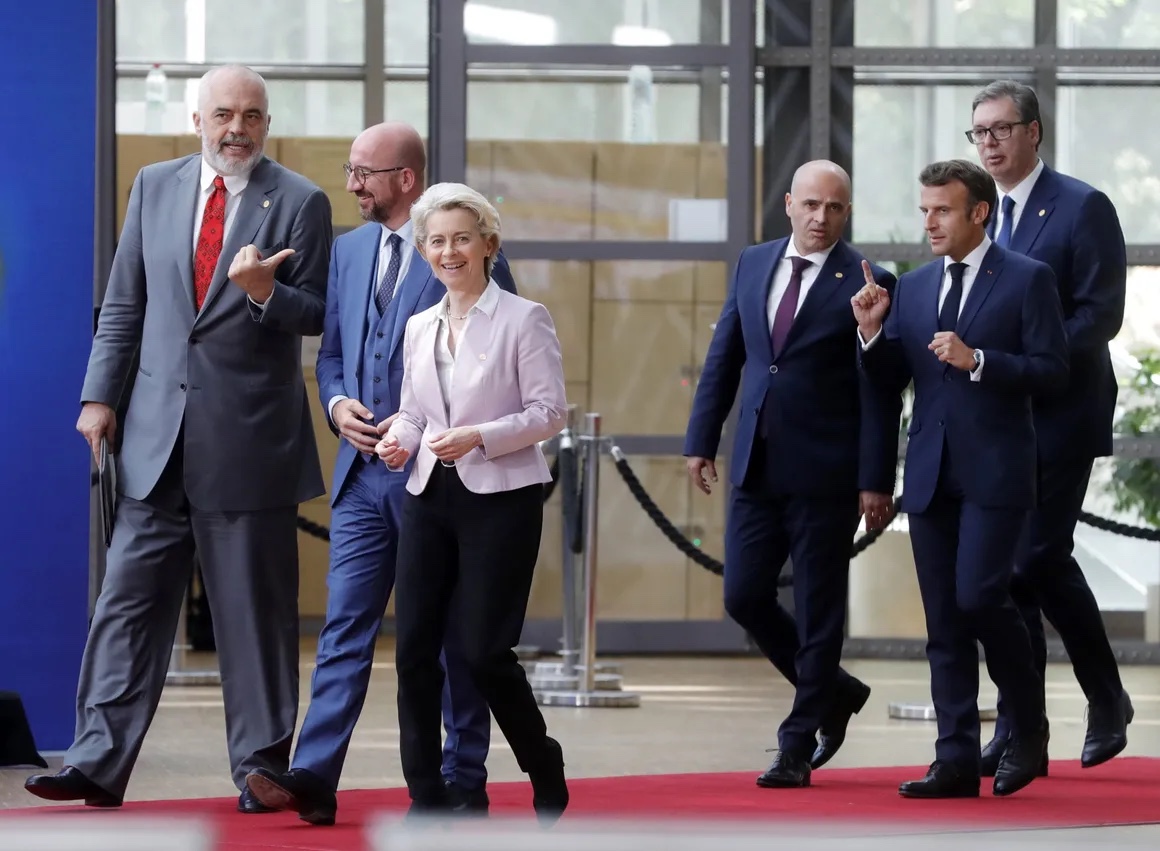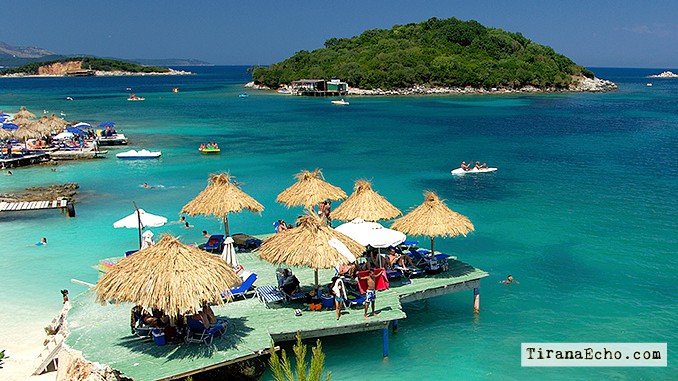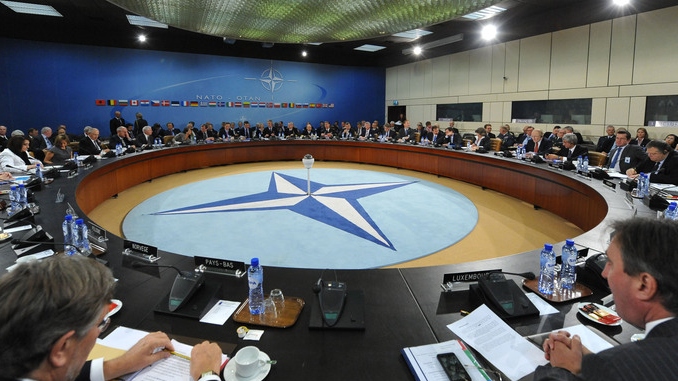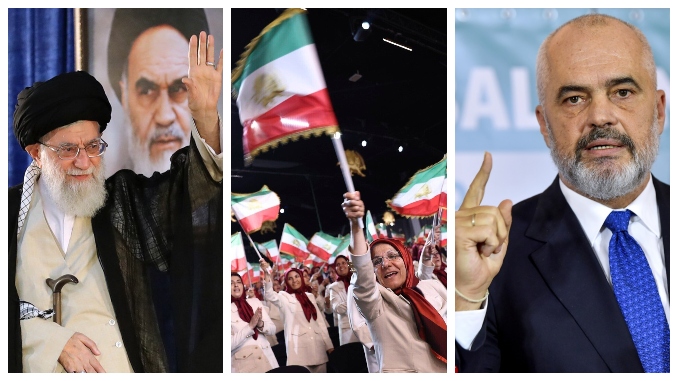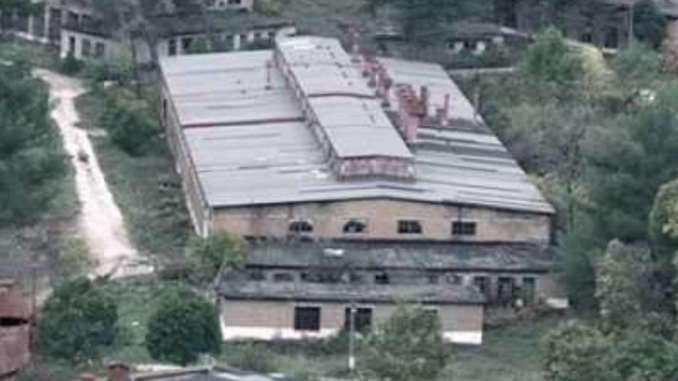EU tells Macedonia leaders to stand aside or face sanctions
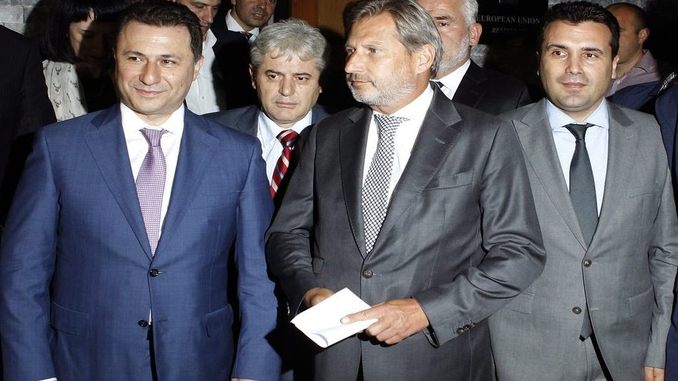
Macedonian leaders risk sanctions if they continue to block a new government and stoke inter-ethnic conflict, EU mediators dealing with a crisis in the Balkan country have warned.
Gjorge Ivanov, Macedonia’s president, has refused to give Zoran Zaev, the opposition leader backed by a majority of MPs elected in December, a mandate to form a government. Mr Ivanov, an ally of Nikola Gruevski, the former prime minister, accuses Mr Zaev of undermining Macedonia’s sovereignty by promising the ethnic Albanian minority greater language rights.
Ivo Vajgl, an MEP visiting Macedonia as part of a four-member EU delegation, condemned Mr Ivanov’s actions and said that if the situation deteriorated discussions would move on to “other instruments, starting from the financial kind”.
“The focus of this polemical response to the situation is increasingly moving towards an inter-ethnic conflict,” Mr Vajgl told NOVA TV in Macedonia on Friday.
A senior EU official confirmed that the prospect of sanctions was being considered in Brussels and other EU capitals. The tiny Balkan republic has been thrown into political turmoil with occasional deadly clashes in the two years since leaked recordings revealed what an EU report described as a “massive invasion of fundamental rights” by the government.
The turmoil has drawn Russia and the west into opposing camps. On Thursday Sergei Lavrov, Russia’s foreign minister, said the crisis had been provoked “artificially” and warned western countries against dividing Macedonia.
This month Federica Mogherini, the EU’s foreign policy chief, said the debacle risked spiralling into a geopolitical confrontation. Mr Ivanov was threatened with similar sanctions last year when he pre-emptively pardoned dozens of suspects identified by a special prosecutor investigating allegations of government abuses revealed by the wiretap recordings.
Mr Gruevski was among those pardoned before Mr Ivanov withdrew the amnesty in the face of international condemnation. The threat of targeted measures against Macedonia’s ruling elite echoes events in Ukraine in 2014, when restrictions were imposed on senior figures in the final phases of Viktor Yanukovich’s government.
It also comes as EU leaders are preoccupied by growing political instability in the Balkans, with Jean-Claude Juncker, European Commission president, warning in an FT interview of the risk of war if countries have no prospect of EU membership. Sanctions against Macedonian leaders would require unanimous approval by EU member states.
That would almost certainly face opposition from Viktor Orban, Hungary’s prime minister, who has cultivated close ties with Macedonia.
Mr Ivanov on Tuesday refused to meet the delegation from Brussels, led by Johannes Hahn, the EU enlargement chief, and travelled instead to Budapest for talks with Mr Orban. Mr Gruevski’s encounters with western officials have become increasingly fraught and there are concerns he has set his face against a peaceful transfer of power nearly 10 years after he took office.
The outgoing prime minister met Mr Hahn for three hours in Skopje, the capital, on Tuesday while thousands of pro-government demonstrators gathered outside. According to one person present, Mr Gruevski complained of a plot to get rid of him involving the US. After the talks, Mr Hahn said: “No one should be tempted to play with fire. We are deeply concerned about tensions and hate speech.”
Source: FT

